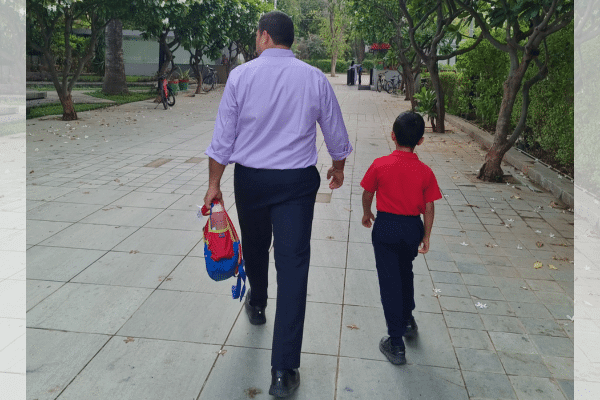It’s almost instinctive for humans to adapt and adjust in any environment they are trying to fit in. With a change in continent, let alone country, we prepare ourselves to acclimatise, adjust and adapt as per the norms and culture of the country we choose to live in.
It feels like just yesterday I was trying to get my head around Aussie slang and corporate jargon. When I first arrived in Sydney, I was eager to dive into my new work life but quickly realised that adjusting to the Aussie way of doing things wasn’t as straightforward as I’d imagined. A month into my new job, my manager casually asked, “How ya going?” I was leaving for the day, so I confidently replied, “I’m going by train.” The room filled with laughter, and I stood there, puzzled, wondering what was so funny about taking the train home.

My cultural mix-ups didn’t stop there. On my first day at work, I showed up in an Indian salwar suit, unaware that it’s not a formal wear in this side of the world. I also remember struggling with coffee cup lids, trying to fit a stirrer through the sipper hole. It was enough to make my husband look at me with a mix of surprise and mild embarrassment. Oops!
And at the home front, I faced challenges trying to maintain my Indian traditions within the Australian way of life. Can’t forget the time I found myself wandering around the neighbourhood at night, looking for crossroads to perform a ritual with coconuts and wada, all while trying to stay within the boundaries of local customs.
And yet, from those early missteps, I grew. I learned to embrace the Australian culture at work, becoming a confident marketing professional seamlessly working in multinational corporations and Big 4 firms. I nailed the Aussie slang, learned to blend in at work, and found ways to keep my Indian traditions alive without raising too many eyebrows. Somewhere along the way, I transformed – from a clueless newbie to a seasoned professional who can navigate both cultures with ease. And, yes, I now know that “How ya going?” is just a friendly way to ask, “How are you,” no train schedules required.

I’ve not only adapted and grown, but my personality has also transformed tenfold over the years. My methods, viewpoints, and overall outlook on people, religion, culture, business and life in general have shifted to align more with progressive, global and modern perspectives.
Now that I have traced my steps back to the motherland, the journey has been similar in a way. I have once again found myself learning a “new” way of life. It’s been a process of re-learning many things I already knew, as well as unlearning some aspects, because my new self loves the progressive, flexible and modern ways of life.
What throws me off balance sometimes is how those around me now have their own set ideas and assumptions about someone who’s lived abroad. They bluntly tell me they never would have guessed I’ve spent years away from India. Maybe it’s because I’m often seen in a salwar suit with my hair tied up in a bun, chatting with the vegetable vendor in an Indian dialect, getting along with neighbourhood aunties, speaking Gujarati with my son, eating with my fingers, and not always dressed in short skirts, branded clothes, or makeup – the stereotypical image they have of one foreign-returned.

On the other hand, professionals and cosmopolitans can immediately tell I’m not quite from here. It doesn’t take long before I hear, “You don’t seem to be from here,” or “Where was your son born? He’s definitely not from here” (and honestly, he’s nearly lost his Australian accent). But I know what they notice when they interact with me: a composed, well-mannered person who always smiles or waves at acquaintances, someone who greets before asking for anything. We’re mindful of our actions, not bluntly asking personal questions and never taking things for granted. We make it a point to return favours, express gratitude, and uphold simple courtesies, saying our “pleases” and “thank yous.” We’re also punctual, attentive to detail, don’t interrupt conversations out of turn and are considerate of others’ time. We listen actively in conversations, respect diverse perspectives, and approach disagreements with diplomacy. It’s all of this and a lot more that we have subconsciously absorbed in our traits and personality that portrays us in a different light, and not the foreign ascents and branded clothing with expensive accessories.
It’s a reflection of how deeply we value kindness, respect, and the little gestures that make everyday interactions meaningful, striving to leave every place and person better than we found them.
While I absolutely love reconnecting with my roots and fully immersing myself in Indian traditions, I’ll always be grateful for the warm and refined personality I’ve developed from my experiences and exposure abroad.
Watch this space for more stories of transition as Sydneysider Nehal becomes an Ahmedabadi gal once again.
Read more: Homecoming: the big ‘why’ behind moving back to India



